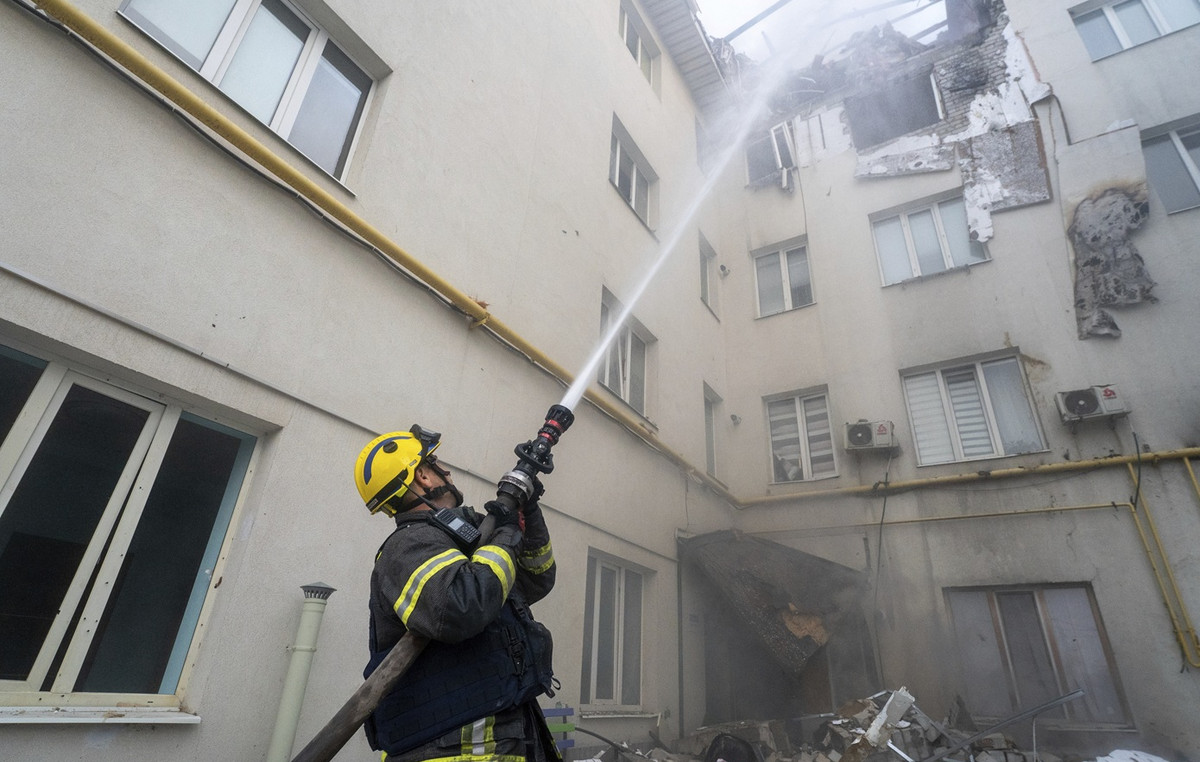As the residents in Gaza getting ready for land Israeli attackafter days of heavy airstrikes and a blockade, in response to the attack by the Palestinian Islamist group Hamashealth ministry official Ashraf al-Kindra wonders how hospitals will cope.
The doctors they strive to help one more and more increasing number of patients, including children injured in the airstrikes, in overcrowded hospitals facing drug and fuel shortages due to the blockade. Only the most severe cases end up in surgeries because there are not enough resources, doctors said. Fuel stocks in all hospitals in the Gaza Strip are expected to last for just 24 more hours, the United Nations Office for the Coordination of Humanitarian Affairs (OCHA) warned today.
At least 2,750 Palestinians have been killed and 9,700 injured since October 7, as announced today by the Ministry of Health. Another 1,000 people are missing and are estimated to be trapped under the rubble. Kindra appealed to people to go to Sifa Hospital, the largest of the enclave’s 13 medical facilities, to donate blood.
“If the hospital goes down, the whole world will be responsible for the lives of hundreds and thousands of patients who rely on our supplies, especially from Sifa,” said Kindra.
Shifa Hospital serves the entire Gaza Strip but more directly the approximately 800,000 people living in Gaza City.
Israel has launched its heaviest airstrikes ever and is expected to launch a ground attack on Gaza, one of the world’s most populous areas with 2.3 million people. He has vowed to wipe out Hamas in response to its militants’ attack on Israeli towns nine days ago, in which militants shot dead men, women and children and took hostages in the worst attack on civilians in the country’s history.
It is so hard
Some Palestinians fled their homes in Gaza City after the Israeli army warned them to move south.
But some said they were at risk of Israeli airstrikes as they moved, and others were returning north because of insecurity and a lack of accommodation in an increasingly crowded area.
The Israeli military was not immediately available for comment.
The Palestinians in Gaza said the overnight Israeli bombardment was the heaviest since Israel began retaliation. The shelling was particularly heavy in Gaza City, with airstrikes in areas around the city’s two main hospitals, they said.
Said Al-Abdallah is lying in a hospital bed, connected to a dialysis machine. He escaped shelling at his home in Khan Yunis. “I am on dialysis, and this process is very difficult, we suffer a lot. We are having difficulty with transportation and commuting,” he said. “And now we are at war, o war is destruction and death and torture. We have been driven from our homes and are no longer in our homes. It is so hard”.
At Nasser Hospital in Khan Younis, in the southern Gaza Strip, where ambulances carrying casualties continue to arrive, patients with chronic illnesses face the possibility that the machines will stop working. “We have 220 kidney patients. Half of the machines will be out of order tonight and we cannot provide dialysis to everyone,” said Dr. Mohammed Zakout. “It’s a humanitarian disaster.”
Nahid Al-Khuzudar, a kidney patient who was forced to leave Gaza City with his family for Khan Younis, said that he was undergoing dialysis three times a week but so far he has not done any, APE-MPE reports.
“My legs started to swell, I feel like I’m suffocating, I need dialysis immediately“Khuzudar told Reuters as he waited outside the kidney ward at Khan Younis Hospital as dozens of injured people arrived along with the lifeless bodies of the dead.
Source: News Beast
With 6 years of experience, I bring to the table captivating and informative writing in the world news category. My expertise covers a range of industries, including tourism, technology, forex and stocks. From brief social media posts to in-depth articles, I am dedicated to creating compelling content for various platforms.







